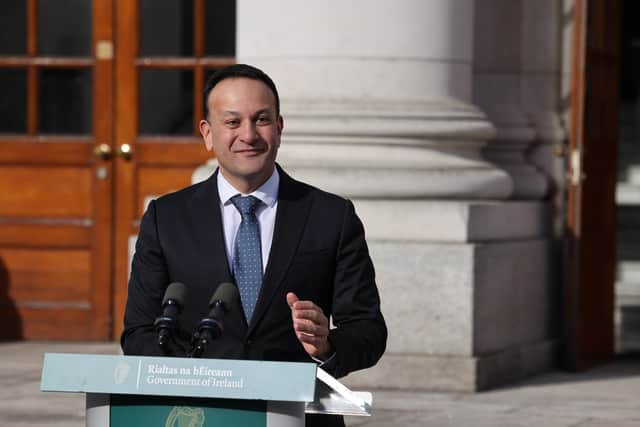Ireland to vote on removing ‘women’s place in the home’ reference from constitution
and live on Freeview channel 276
Ireland will hold a vote on removing references to a woman’s place being “in the home” from the country’s constitution, it has been announced.
The reference in question, in Article 41.2 of the constitution, states that “mothers shall not be obliged by economic necessity to engage in labour to the neglect of their duties in the home” - as Ireland recognises that “by her life within the home, woman gives to the state a support without which the common good cannot be achieved.”
Advertisement
Hide AdAdvertisement
Hide AdSpeaking as part of celebrations for International Women’s Day (8 March), Taoiseach Leo Varadkar confirmed that the Irish Government will hold a referendum in November, where citizens can vote on whether or not the “outmoded” reference should be removed.
He said: “I am pleased to announce that the government plans to hold a referendum to amend our constitution to enshrine gender equality and to remove the outmoded reference to ‘women in the home’.
“For too long, women and girls have carried a disproportionate share of caring responsibilities, been discriminated against at home and in the workplace, objectified, or lived in fear of domestic or gender-based violence. We can be the generation that changes all of that.”


It comes after the Citizens’ Assembly - a committee used to debate proposed constitutional changes before a referendum - and the Special Joint Committee on Gender Equality last year recommended removing the references to women’s place ‘in the home’ and replacing them with “non-discriminatory” language. Mr Varadkar’s predecessor, Micheál Martin, previously said he would like to see a referendum on the constitutional clause.
Advertisement
Hide AdAdvertisement
Hide AdThe referendum will be held in November, with campaigns to begin in September. After voting day, an amendment to the constitution will only be enacted if approved by popular vote - as is the case for all constitutional changes in Ireland.
Since the constitution was first written in 1937, the country has held 38 referendums. Some of the more recent examples include a referendum which allowed same-sex marriage, and one which made abortion laws less restrictive.
When the Citizens’ Assembly on Gender Equality provided its report on the constitution, it issued 45 recommendations - with the most notable being that Article 41.2 should be deleted and replaced with non-gender-specific and non-discriminatory language, that obliges the state to take reasonable measures to support care within the home and wider community.
Irish Labour Party leader Ivana Bacik, who chaired the committee on gender equality, said at the time that “the way in which women and mothers are referred to in Article 41 is based on outdated gender stereotypes and should have no place in a constitutional text”.
Comment Guidelines
National World encourages reader discussion on our stories. User feedback, insights and back-and-forth exchanges add a rich layer of context to reporting. Please review our Community Guidelines before commenting.
